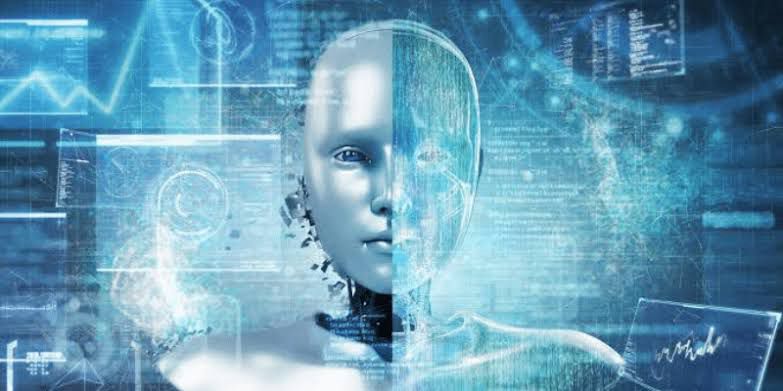
How Nigerian Businesses Are Leveraging AI to Drive Growth and Efficiency
In 2020, Kassy Olisakwe launched Auroraweb3, a Nigerian company focused on building decentralized solutions, websites, and applications. At the time, his agency’s annual revenue stood at ₦114 million (approximately $74,000). Fast forward to today, and since integrating Artificial Intelligence (AI) tools such as Chat-GPT, Claude, Cursor, Juro, and Perplexity, revenue has skyrocketed to over ₦481 million in just six months — with expectations for continued growth.
“AI has significantly boosted our productivity and output, allowing us to take on more projects without sacrificing quality,” Olisakwe told TechCabal. The agency has also expanded into new verticals including Web3 investments and trading bot development. Tasks that once required entire teams can now be efficiently executed by just one or two developers, thanks to AI-powered workflows.
Similarly, Fadé Adeniyi, co-founder of the UK-Nigeria-based tech recruitment firm Techlerator, reported a 65% revenue increase in just four months after embracing AI. The use of tools like Llama, a large language model, has enabled Techlerator to transition from individual in-person classes to mass training programs, reaching over a thousand learners at once.
AI as a Cost-Cutting and Revenue-Boosting Tool
Across Nigeria, more businesses are tapping into AI to optimize costs, scale operations, and boost productivity, especially in the face of inflation and economic pressures. The release of ChatGPT by OpenAI in November 2022 marked a turning point, driving widespread AI adoption. As of February 2025, ChatGPT had over 400 million weekly users, a massive jump from just one million in its launch month.
Other players such as Google, Meta, Baidu, and Anthropic have also entered the AI arena, each striving to release more powerful and intuitive tools.
Ogugua Belonwu, CEO of MyJobMag Limited, a Lagos-based recruitment firm, stated that AI has accelerated content production, improved SEO, and opened up new revenue streams. Before adopting ChatGPT in 2024, the company spent around ₦6 million ($3,904) annually on content writers. Now, AI handles tasks like outlining, content generation, and keyword optimization.
In the same vein, Temi Babalola, CEO of Spitch, which develops speech AI models, said AI tools have reduced operational costs by 10%. From brainstorming and product planning to writing specs and assigning tasks, AI is now embedded in every stage of their product development lifecycle.
AI’s Growing Economic Impact
As AI becomes more integrated into core business functions, its macroeconomic impact is becoming clearer. A Google report projects AI could add $15 billion to Nigeria’s GDP by 2030, with each dollar invested in digital technology returning eightfold in economic value. The GSMA estimates AI could contribute $2.9 trillion to Africa’s GDP, highlighting Nigeria’s leadership in sectors like energy, agriculture, and climate action.
In agriculture, for example, startups like Thrive-Agric are using AI to assess farmers’ creditworthiness for loans, while Hello Tractor connects tractor owners and farmers via an AI-driven equipment-sharing platform.
Balancing Innovation With Job Security
Despite the benefits, the rise of AI raises concerns about job displacement. A 2024 World Economic Forum (WEF) report revealed that 41% of employers plan to reduce their workforce due to automation. Bloomberg also predicts global banks may cut up to 200,000 jobs in the next 3–5 years.
However, Olisakwe argues that AI hasn’t replaced his workforce — it has amplified their capabilities. “Top-tier professionals now lead multiple projects simultaneously,” he said. “We’ve streamlined operations without resorting to layoffs, ensuring sustainable growth.”
MyJobMag has adopted a cautious approach to AI integration, avoiding overuse that could alienate clients or reduce human touch. CEO Belonwu emphasized the importance of balance to maintain trust and business relationships.
AI as a Creative Partner
For creatives like Mathew Munyao, founder of Arttention Media in Kenya, AI has enhanced — not replaced — creativity. He uses tools like Grok 3, ChatGPT, and DeepThink for research, ideation, music composition, animation, and web design. “AI helps me create faster and with more depth,” Munyao said.
Since ChatGPT’s debut, global investments in AI have surged nearly eightfold, accompanied by increased spending on infrastructure like servers and power systems to support this rapid growth.
The Future of Work in the Age of AI
While some roles may be automated, AI is also creating new, high-demand jobs. The WEF predicts rapid growth in tech-related roles such as:
In Nigeria, a 2024 survey by Ipsos and Google revealed that 70% of Nigerians actively use generative AI tools like Gemini and ChatGPT — far above the global average of 48%. These tools are now being used for writing, learning, document analysis, and creative tasks.
However, roles in accounting, data entry, customer service, and logistics are among those increasingly being automated.
Staying Relevant in the AI-Driven Era
To remain competitive, experts advise professionals to embrace AI as a tool for growth rather than a threat. Jennifer Oyelade, Director of Transquisite Consulting, urges workers to learn industry-relevant AI tools and merge them with their domain expertise.
“AI fluency will give you an edge,” she said. “Whether in finance, HR, or tech — integrating AI into your skillset is now essential.”
Olamide Adeyeye, a Lagos-based human development researcher, echoes this, emphasizing specialization. “The future belongs to those who have mastered a specific skill, not generalists,” he noted.
In conclusion, AI is reshaping business and work in Nigeria, unlocking new efficiencies, revenue streams, and opportunities. While the transition comes with challenges — particularly around job security — the potential benefits far outweigh the risks for those who adapt quickly. In this new era, the key to success is clear: learn, specialize, and leverage AI smartly.